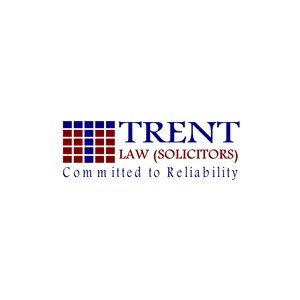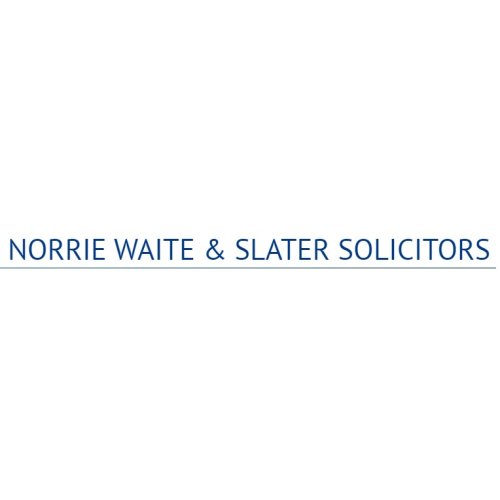Best Foreclosure Lawyers in Sheffield
Share your needs with us, get contacted by law firms.
Free. Takes 2 min.
Free Guide to Hiring a Real Estate Lawyer
List of the best lawyers in Sheffield, United Kingdom
About Foreclosure Law in Sheffield, United Kingdom
In the United Kingdom, including Sheffield, the process akin to what is known as foreclosure in other jurisdictions is commonly referred to as repossession. This generally involves a bank or other lender taking possession of a property when the mortgage holder has failed to keep up with their repayment commitments. The process can be complex, requiring court orders and typically involves a number of legal rights and obligations for both lender and borrower.
Why You May Need a Lawyer
If you are facing the possibility of repossession of your property in Sheffield, you may need a lawyer to provide effective legal guidance. Key situations where a lawyer can be beneficial involve negotiating with lenders, representation during court proceedings, challenging the legality of the repossession, and seeking ways to delay the process to provide opportunities to clear arrears or sell your property. A lawyer can also help understand and protect your rights as a homeowner, such as ensuring the lender has followed proper procedures before instigating the repossession process.
Local Laws Overview
Foreclosure or repossession laws in Sheffield follow federal laws in England. Key legal principles include, a lender needing a court order to repossess a property, and homeowners having a right to a fair hearing in court. Further, lenders are commonly obliged to treat homeowners fairly and consider alternatives before resorting to repossession. Legal quirk in repossession law in the UK includes the "time order" concept which allows homeowners, under certain circumstances, to alter the terms of their mortgage to prevent the repossession.
Frequently Asked Questions
What do I do if I can't keep up with my mortgage payments?
Contact your lender as soon as possible. You should also consider seeking advice from experienced legal counsel and debt counsellors for understanding available options and developing a plan.
Can my lender repossess the property without a court order?
No, a court order is mandatory except in some rare circumstances. If there are occupants in the property that oppose the repossession, the issue must be resolved through court.
What constitutes as treating a borrower 'fairly'?
Lenders are under an obligation to show sympathy and flexibility towards borrowers in financial distress. They should consider alternatives to repossession, provide assistance in selling the property, or offer options to make reduced payments for a short period.
What is a 'time order'?
A 'time order' is an order from the court that can alter the terms of the mortgage to make it easier for the borrower to make payments, thereby avoiding the repossession.
Can I get my property back after repossession?
In certain cases, yes. If you can clear your arrears and ongoing costs, you may be able to get your property back even after eviction, if the property hasn't yet been sold.
Additional Resources
Some key resources for individuals dealing with foreclosure issues include The Citizens Advice Bureau, which provides general advice and support, and the Financial Conduct Authority, which regulates lenders and maintains a guide about treatment of customers facing repossession. Local law centres and solicitor firms also often provide specialist advice on repossession matters.
Next Steps
If you are facing a potential repossession, consider taking immediate steps such as contacting your lender to discuss your situation and examine possible options. Get legal advice from a specialist solicitor experienced in repossession laws. Importantly, act promptly. The sooner you seek help and take action, the more options you may have to potentially avoid repossession.
Lawzana helps you find the best lawyers and law firms in Sheffield through a curated and pre-screened list of qualified legal professionals. Our platform offers rankings and detailed profiles of attorneys and law firms, allowing you to compare based on practice areas, including Foreclosure, experience, and client feedback.
Each profile includes a description of the firm's areas of practice, client reviews, team members and partners, year of establishment, spoken languages, office locations, contact information, social media presence, and any published articles or resources. Most firms on our platform speak English and are experienced in both local and international legal matters.
Get a quote from top-rated law firms in Sheffield, United Kingdom — quickly, securely, and without unnecessary hassle.
Disclaimer:
The information provided on this page is for general informational purposes only and does not constitute legal advice. While we strive to ensure the accuracy and relevance of the content, legal information may change over time, and interpretations of the law can vary. You should always consult with a qualified legal professional for advice specific to your situation.
We disclaim all liability for actions taken or not taken based on the content of this page. If you believe any information is incorrect or outdated, please contact us, and we will review and update it where appropriate.















